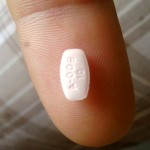Introduction
Bipolar, otherwise known as manic depression, now exists largely within common consciousness and understanding, thanks to high profile stigma-busting publicity.
Characterised by episodic shifts in a person’s mood (between manic and depressed states), as well as their energy and activity levels, which can significantly impact their daily functioning, bipolar is estimated to affect 1% of the population across the lifetime. However, this figure rises to over 4% if you include those who experience more than one episode of sub-threshold manic (or ‘hypomanic’) symptoms.
What we know already
Anxiety is unsurprisingly common in people living with bipolar. Similarly, substance abuse is frequently reported.
Whilst there is no cure, there are several well-established treatment options. Bipolar is usually treated using mood-stabiliser, atypical anti-psychotic and/or antidepressant medications, alongside psychological, and diet and lifestyle interventions. We know, for example, that bipolar can be well managed using regular monitoring of mood, keeping stress levels to a minimum, and ensuring good sleep.
Areas of uncertainty
Like many mental health difficulties, the precise causes of bipolar are unknown, though they are likely multi-faceted. Research shows that you are more likely to develop bipolar if it exists in your family. Although most children with such circumstances will not go on to develop bipolar, there appears to be a strong genetic component. Environmental factors such as stressful life events are also thought to play an important role.
Recent research suggests that, whilst it appears beneficial to treat bipolar with psychological interventions, the heterogeneity of the evidence makes it difficult to decide which treatments (such as CBT, Mindfulness etc) work best.
What’s in the pipeline?
Large-scale studies, such as the U.S-based Bipolar Disorder Phenome Database, are seeking to better understand the complex genetic picture.
Advances in brain imaging will no doubt provide rich information regarding the neurochemical and neurostructural profile of bipolar. Similarly, technological advances are enabling more sophisticated ways of promoting self-management in conditions such as bipolar.
References
Merikangas, K.R., Akiskal, H.S., Angst, J., et al. (2007) Lifetime and 12-month prevalence of bipolar spectrum disorder in the National Comorbidity Survey replication. Archives of General Psychiatry, 64, 543-552. [Abstract]
Stratford, H.J., Cooper, M.J., Di Simplicio, M., Blackwell, S.E. and Holmes, E.A. (2015) Psychological therapy for anxiety in bipolar spectrum disorders: a systematic review. Clinical Psychology Review, 35, 19-34. [Abstract]
Acknowledgement
Written by: Patrick Kennedy-Williams
Reviewed by:
Last updated: Sep 2015
Review due: Sep 2016











